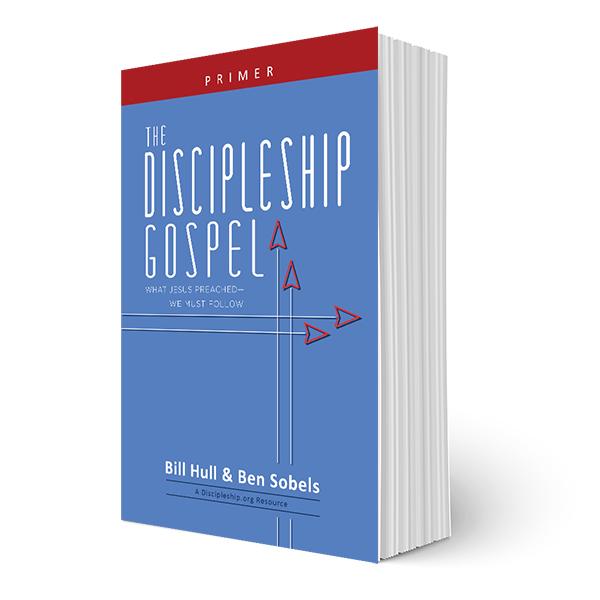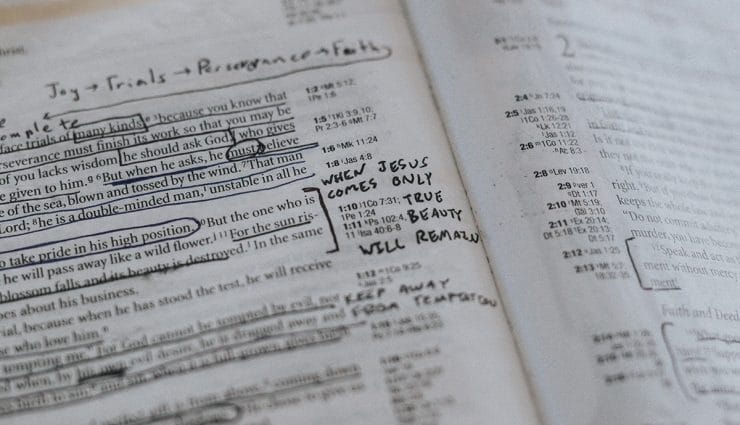Gospel Confusion
This blog is an excerpt from the free eBook, The Discipleship Gospel Primer. Download it free here.
“A general fog of confusion swirls around [the gospel] these days. When it comes right down to it, Christians just don’t agree on what the gospel is—even Christians who call themselves evangelical.”1
—Greg Gilbert, What is the Gospel?
A number of years ago, a neighbor invited me (Ben) to a barbecue in his backyard one Sunday afternoon. We had lived next door to each other for a couple of years, and we had a lot in common: We were about the same age, shared tools with each other, and had come to know and like each another. His name was John, and he wasn’t a Christian. He didn’t attend a church and never talked about “religion” unless I brought it up.
As we stood barbecuing meat in his backyard, I was pleasantly surprised when he said to me, “So, Christians are always talking about ‘the gospel.’ You’re a pastor.” Then, looking directly at me, he asked, “What is the gospel?” For months, I’d been praying that he would be open to talking about Jesus. What an amazing opportunity! The problem was—in this incredible evangelistic moment—my mind went completely blank. I bumbled and stumbled and eventually shared the gospel with John. The experience, however, left me startled (and humbled) at my inability to succinctly communicate the gospel.
This blog is an excerpt from the free eBook, The Discipleship Gospel Primer. Download it free here.
What Is the Gospel?
It seems like such a simple question, doesn’t it? But if you ask ten Christians, it’s likely you’ll get ten different responses. Some people will respond with one-word answers, others with a long rambling speech, and still others with a silent, awkward stare. Why is this? If Christians should be crystal clear about one thing, it should be the gospel, right? The gospel is supposed to be “of first importance,” isn’t it? As Christians, we’re meant to be “unashamed of the gospel,” aren’t we?2 But how can you be unashamed of the gospel when you’re not crystal clear on what the gospel is? Unfortunately, it’s all to common for arguments to erupt among Christians when you ask the simple question, “What is the gospel?” A lack of clarity about the gospel has led to a lot of disunity in the church.
This lack of clarity rears its ugly head in various forms in local churches and Christian settings. For example, a new Christian high school once asked me to review the rough draft of a doctrinal statement. While their statement did include a declaration of the gospel, the declaration made no reference to Jesus’ resurrection. A gospel declaration that doesn’t include Jesus’ resurrection is no gospel at all.3
Another time, a young man on our church staff team was going through our ordination process to become a pastor. As part of this process, our elders asked him to preach a sermon and succinctly articulate the gospel. The pre-selected Bible passage was primed for a gospel message, but he didn’t do it; in fact, he said he couldn’t do it. Afterward, when he was asked to summarize the gospel in writing, he turned in a ten-page paper!
Several years ago, we were interviewing a potential new elder in our church and asked him, “What is the gospel?” He looked at us like a deer caught in headlights. The look on his face reminded me of what I felt when my friend John asked the same question at the barbecue in his backyard.
The problem isn’t that Christians aren’t talking about the gospel—we are. It seems like everything in the Christian subculture of America is tagged with “gospel-driven” this and “gospel-centered” that. We talk a lot about the gospel, but if you really listen, that’s exactly what it is—it’s just talk about the gospel. There’s lots of talk about the gospel in general terms, but precious little about what the gospel actually is! This gospel “talk” has left many people in churches all across America thinking, we know the gospel, when, in fact, we don’t. We may have become numb to it. Something is really wrong when Christians are confused about the gospel or numb to it.
Increasing Confusion and a Lack of Clarity
The first-century church wasn’t confused about the gospel. They were crystal clear about it, as New Testament scholar C.H. Dodd writes: “No Christian of the first century had any doubt what [the gospel] was.”4 Jesus passed on the gospel he preached to his apostles. Even Paul—who wasn’t one of Jesus’ original twelve but became an apostle later—received the gospel from Jesus himself. Then, Paul made it known to the other “pillar” apostles, who affirmed his gospel was from Jesus himself.5 Jesus’ apostles then passed on the gospel to faithful men and women who passed it on to others.6 The first-century church knew the gospel with precision; they had a clear understanding of it and could communicate it succinctly. They defined it to the point of transferability. In other words, they knew when they had passed it on to others and when it had been received.7 When the first-century church leaders preached the gospel with this level of clarity, the power of the gospel was unleashed. It began changing the world.
Something has changed in the church since then. The gospel that was crystal clear to the first-century church and began a world revolution isn’t clear to the twenty-first century church. Not only is there confusion, but the church’s lack of clarity has also led to an escalation of churches that preach a false gospel. If this is true—and we believe it is—that reality should cause us all to want to drop everything and pay much closer attention to the gospel.8 If it doesn’t make you drop everything, just read the Apostle Paul’s double-curse warning against those who preach a different gospel in Galatians 1:9: “If anyone is preaching to you a gospel contrary to the one you received, let him be accursed.” We need a gospel renaissance.
NOTES:
1. Greg Gilbert, What is the Gospel? (Wheaton: Crossway, 2010) 17.
2. 1 Corinthians 15:3 and Romans 1:16, ESV.
3. 1 Corinthians 15:17.
4. C.H. Dodd, The Apostolic Preaching & Its Developments (New York: Harper & Row, 1964) 76.
5. Galatians 1:11-2:2.
6. 2 Timothy 2:2.
7. 1 Corinthians 15:1-2.
8. As in Hebrews 2:1.
Written by Bill Hull and Ben Sobels
BILL HULL is cofounder of The Bonhoeffer Project and author of Conversion and Discipleship and The Disciple-Making Pastor. He speaks as a persevering prophet on the topic of discipleship around the nation.
BEN SOBELS is a graduate of Dallas Theological Seminary and serves as Senior Pastor at Cypress Community Church in Salinas, California. He also serves as a regional director for The Bonhoeffer Project.





